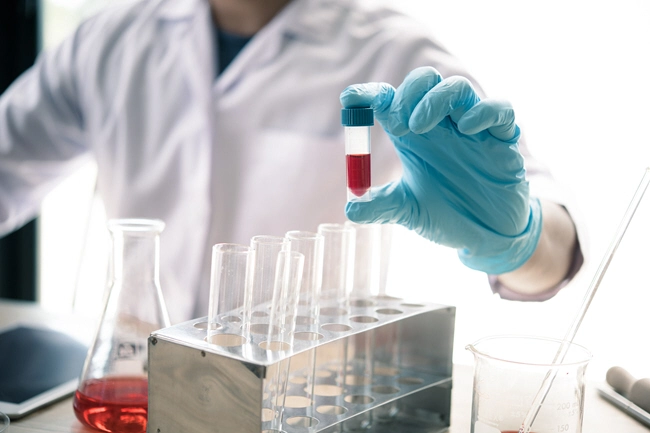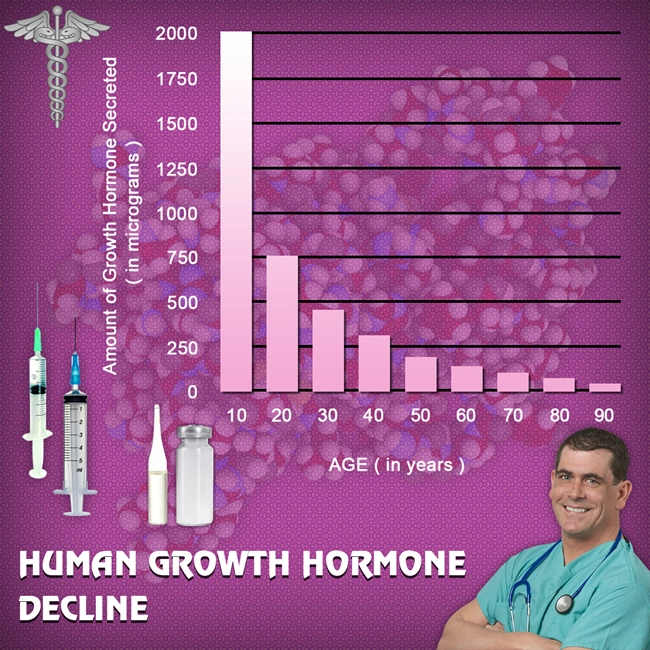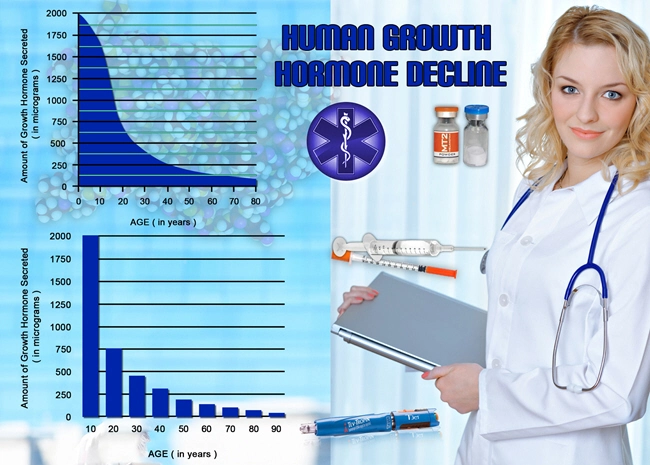
 Reproductive health is an essential avenue of scientific research. Scientists have been following a troubling trend over the last thirty years—sperm counts have been getting progressively lower among younger men. There are many factors that contribute to declining sperm production—an increase in obesity is one of the more significant culprits. Environmental influences also play a major role.
Reproductive health is an essential avenue of scientific research. Scientists have been following a troubling trend over the last thirty years—sperm counts have been getting progressively lower among younger men. There are many factors that contribute to declining sperm production—an increase in obesity is one of the more significant culprits. Environmental influences also play a major role.
Researchers have been paying increasing attention to the role of chemicals which disrupt hormone production and signaling in recent years—these chemicals are known as Endocrine Disrupting Chemicals (or EDCs).
Studies Show Sperm Counts Have Dropped Precipitously
Past research makes it clear that there are many chemicals that can induce humans to produce less sperm. Research shows that sperm counts have dropped by as much as half in the west in the last forty years. Scientists have been performing more tests to see exactly how much of these chemicals may be actually circulating in our bodies.
One of these studies was published in June of 2022 in Environment International. They took urine from 98 men and tested for various EDCs. Among the Endocrine Disrupting Chemicals tested were dioxins and bisphenols. The levels of these chemicals were alarmingly high, as much as 100x acceptable levels. These high EDC Levels are inevitably having a suppressive impact on sperm counts. Collectively, the average participant in this study experienced EDC levels 17x the unacceptable threshold. The authors note that the combined exposure to the chemicals that they tested was a troubling revelation.
The Covid-19 epidemic highlights the importance of understanding how sensitive that our sperm are to endogenous and exogenous influences. Covid can have a significant effect on sperm health and motility that can reduce fertility for months. This new factor only combines with other trends which impact sperm count, such as the proliferation of EDCs has on male sexual health.
Numerous Chemicals Negatively Influence Hormone Balance
This study tested the levels of nine known Endocrine Disrupting Chemicals among a group of Danish males between the ages of eighteen and thirty. These EDCs included paracetamol, phthalates, and bisphenol a (BPA). Furthermore, the investigators used information from the European Food Standards Agency to approximate their anticipated exposure to twenty other possible EDCs.
The researchers took all these results and compared them to the current body of scientific evidence, measuring them against what were considered “safe” levels of exposure. They created a “hazard index” by measuring how much their current levels of EDC exposure exceeded “safe” levels and how much those levels were likely to impact sperm count.
Prevalence of EDCs Astound Even Seasoned Scientists
Professor Andreas Kortenkamp was the head author of this study and is a teacher and researcher at London's Brunel University. He found the high levels of EDCs tested to be astonishing. Their study found that Bisphenol A had the strongest influence on sperm count among the chemicals tested.
The team found this somewhat surprising given that phthalates have come under the most substantial recent scrutiny. After Bisphenol A, dioxins had the most decisive influence, followed by paracetamol and phthalates. You likely recognize paracetamol because it's the generic name for Tylenol. Researchers admit that paracetamol lowers sperm count likely because of a combination of the drug itself and the symptoms that it's meant to treat.
Landscape of EDC Distribution Changes Over Time
The data collected for this study came from the years 2009 and 2010. There's a chance that BPA exposure has gone down since then, while it's possible that other chemicals have become more prominent. The authors of this study also express that these results may not accurately convey the full risk of EDC contamination because there are a variety of chemicals that human beings are exposed to, which also interact poorly with our hormones.
The researchers say that, based on this research and studies like it, regulatory agencies should take action to lower exposure to these chemicals, like keeping BPA out of food packaging. Furthermore, they believe that more animal research should be done to explore the effects of paracetamol on sperm and semen.
Contact Us Today For A Free Consultation
Dear Patient,
Once you have completing the above contact form, for security purposes and confirmation, please confirm your information by calling us.
Please call now: 1-800-380-5339.
Welcoming You To Our Clinic, Professor Tom Henderson.

- Are You Constantly Feeling Tired And Fatigued ? [Last Updated On: May 21st, 2024] [Originally Added On: May 1st, 2018]
- Constantly Tired? Can't Sleep? [Last Updated On: April 10th, 2024] [Originally Added On: March 23rd, 2019]
- How to Understand and Deal with Cirrhosis [Last Updated On: April 9th, 2024] [Originally Added On: April 12th, 2019]
- Insomnia: The Silent Killer [Last Updated On: April 8th, 2024] [Originally Added On: April 30th, 2019]
- Lipocine Reintroduces Tlando [Last Updated On: July 18th, 2024] [Originally Added On: March 18th, 2020]
- High-Intensity Interval Training Boosts Both Body and Mind [Last Updated On: March 24th, 2024] [Originally Added On: May 10th, 2020]
- Tattoo Safety: What to Know Before You Get a Tattoo [Last Updated On: April 1st, 2024] [Originally Added On: June 2nd, 2020]
- Testosterone and Fatherhood [Last Updated On: May 20th, 2024] [Originally Added On: October 12th, 2020]
- L-Arginine: The Key to Both Heart Health and Sexual Health [Last Updated On: April 6th, 2024] [Originally Added On: December 4th, 2020]
- The Importance of Hormonal Balance for Menopause [Last Updated On: March 25th, 2024] [Originally Added On: December 14th, 2020]
- Menopause Drugs: Study Stokes New Debate Over Cancer Risks [Last Updated On: April 4th, 2024] [Originally Added On: December 16th, 2020]
- Study Examines Link Between Growth Hormones and Osteoporosis [Last Updated On: April 7th, 2024] [Originally Added On: December 17th, 2020]
- Everything You Need to Know About Clomiphene [Last Updated On: April 5th, 2024] [Originally Added On: December 20th, 2020]
- Fast Facts About DHEA: What You Need to Know About This Natural Steroid [Last Updated On: July 15th, 2024] [Originally Added On: March 4th, 2021]
- Enjoy a Few Drinks Weekly? Beware: This May Be a Link to Low Sperm Counts and Quality [Last Updated On: April 2nd, 2024] [Originally Added On: August 16th, 2021]
- Hormone Therapy May Benefit Some Women's Hearts [Last Updated On: February 20th, 2025] [Originally Added On: August 18th, 2021]
- HGH Male Blood Panel [Last Updated On: October 28th, 2021] [Originally Added On: September 28th, 2021]
- Growth Hormone Battles Osteoporosis [Last Updated On: March 31st, 2024] [Originally Added On: October 11th, 2021]
- Growth hormone = More Sleep = Better Sex! [Last Updated On: April 3rd, 2024] [Originally Added On: October 11th, 2021]
- Low Testosterone and Hypogonadism: The Difference [Last Updated On: June 10th, 2024] [Originally Added On: October 12th, 2021]
- The Link Between Testosterone and Tylenol [Last Updated On: March 26th, 2024] [Originally Added On: October 12th, 2021]
- Hormone Replacement Therapy and Aerobics May Ease Menopause Symptoms [Last Updated On: February 19th, 2025] [Originally Added On: October 13th, 2021]
- Growth Hormone and Lifestyle = An Extended Lifespan [Last Updated On: March 28th, 2024] [Originally Added On: October 13th, 2021]
- Growth Hormone, Foods, and Supplements for Healthy Skin [Last Updated On: June 1st, 2024] [Originally Added On: October 13th, 2021]
- Hormone Replacement Therapy, Menopause, and Cancer [Last Updated On: March 29th, 2024] [Originally Added On: October 13th, 2021]
- Growth Hormone, Exercise, and Osteoporosis: The Facts! [Last Updated On: March 27th, 2024] [Originally Added On: October 13th, 2021]
- Hormone Replacement Therapy and Menopause [Last Updated On: March 30th, 2024] [Originally Added On: October 13th, 2021]
- Testosterone and Women [Last Updated On: February 18th, 2025] [Originally Added On: October 13th, 2021]
- Growth Hormone and Smoking [Last Updated On: February 19th, 2025] [Originally Added On: October 14th, 2021]
- Testosterone, Statins, and Prostate Cancer [Last Updated On: February 18th, 2025] [Originally Added On: October 19th, 2021]
- Introduction: Benefits of Hormone Replacement Therapy [Last Updated On: February 8th, 2025] [Originally Added On: February 8th, 2025]









